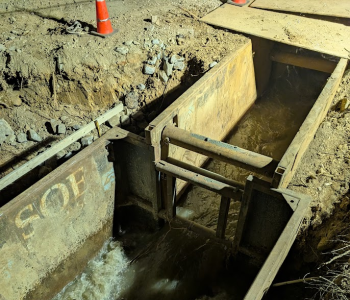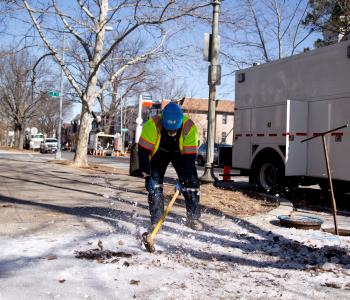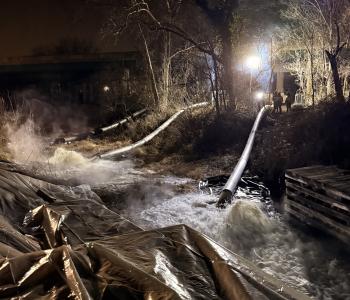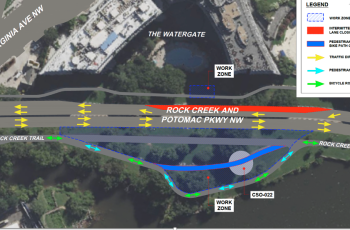WASA Gets National Award for Excellence in Wastewater Treatment
The District of Columbia Water and Sewer Authority (WASA) and its Blue Plains Advanced Wastewater Treatment Plant have received the 2006 Gold Peak Performance Award, which salutes excellence in wastewater treatment. The award, presented by the National Association of Clean Water Agencies (NACWA), recognizes an agencys 100 percent compliance with its federal operating permit for the entire year. The 2006 award adds to the six Gold and three Silver awards that WASA has received in previous years.
The federal National Pollutant Discharge Elimination System (NPDES) permit for Blue Plains regulates pollutants discharged by the plant into the Potomac River. As the largest single point discharger to waters flowing to the Chesapeake Bay, the Blue Plains operating permit has the most stringent requirements of any wastewater treatment plant its size.
Jerry N. Johnson, WASA General Manager said, This award, recognizing Blue Plains for never exceeding the permit limit for pollutants during a calendar year, is the result of substantial and ongoing financial investments to upgrade and update the plant. Further, it testifies to the commitment and hard work of the plant operators and maintenance staff.
Over the last several years, WASA has invested more than $900 million in a critical overhaul of the Blue Plains wastewater plant targeting the repair and replacement of every process unit, from grit chambers and screens to nitrogen removal and final filtration. Recognition like this award is gratifying, as it acknowledges our commitment to environmental protection while providing a critical public service for the DC metropolitan area, Johnson said.
WASA is an outstanding example of successful wastewater environmental efforts. NACWA is honored to showcase the achievements of the Blue Plains Wastewater Treatment Plant through the Peak Performance Awards Program, Ken Kirk, NACWAs Executive Director said.
WASAs Blue Plains Advanced Wastewater Treatment Plant is the largest of its kind in the world, providing wastewater treatment services for a total population of approximately two million in the District and surrounding counties in Maryland and Virginia. The plant covers 150 acres on the bank of the Potomac in southwest Washington and operates with a rated treatment capacity of 370 million gallons a day (MGD) and a peak capacity of 780 MGD.
###








